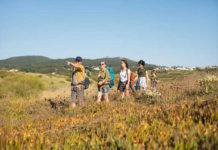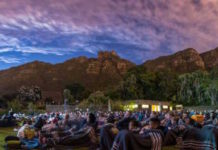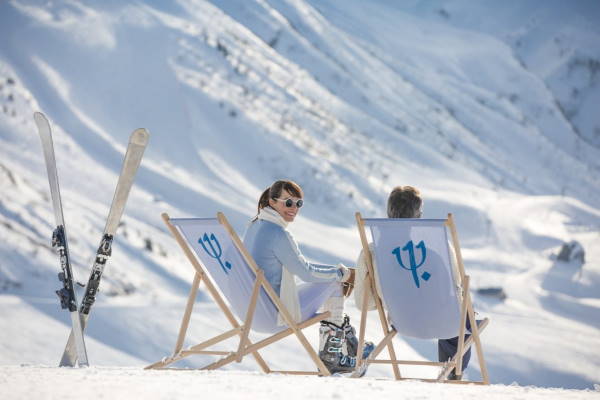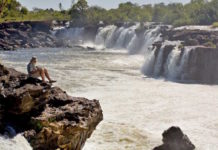Travelling, especially overseas, can be either exciting or overwhelming – depending on whether you’re a seasoned traveller or not. Nonetheless, everyone likes to feel prepared when travelling. This is why it is useful to have a checklist of questions you would like answered ahead of your holiday. We chatted to the Club Med Southern Africa team (who are experts when it comes to all things snow holidays) and have compiled some questions that may be useful when it comes to planning a snow holiday.

Where can I go on a snow holiday, and when should I go?
Northern hemisphere
- Europe
- French Alps, Italian Alps, Swiss Alps and Austrian Alps
- Mid-November until late-April
- Asia
- China
- Mid-November until late-March
- North America
- December until April
- Canada
- Mid-November until April
- China
- French Alps, Italian Alps, Swiss Alps and Austrian Alps
How do I know where is best for me?
Each destination has its own perks and offerings for different tastes. Some destinations cater more to families (offering loads of activities for both adults and children), while others predominantly cater to adults; some are higher altitude for those wishing to ski/snowboard later in the snow season, where it is also warmer; some have more complex snow runs catering to experienced skiers, while others are better suited to beginners. It’s worthwhile chatting to a travel expert to find out which destination may be better suited to your needs.
What does the altitude of a resort mean?
Altitude is the height of an object (in this case, the snow resort) or point in relation to sea level or ground level. The higher the altitude of a resort, the more snow it is likely to have, longer in the snow season.
How easy is it to get from the airport to the various snow resorts?
Logistically, reaching the Alps (in Europe particularly) for a snow holiday is made that much easier with flights through Air France (leading you practically onto the doorstep of many snow holiday hot spots in Europe). Once you land at the airport which is closest to your chosen snow destination, it’s usually one bus transfer to the resort. The distance from the airport to the resort depends on the destination, but can be anywhere from a one hour drive to a three hour drive.
Should I ski or should I snowboard?
This post on Snowskool breaks it down quite well https://www.snowskool.com/blog/skiing-or-snowboarding-for-beginners-which-is-easier-to-learn. Quoting from the post (in a nut shell): “Skiing is easier to learn but harder to master – whereas snowboarding is harder to learn but easier to master.”
This is a common claim you will hear in the world of snowsports and while different people can take to different sports, it’s generally true. With skiing, a beginner’s technique can be broken down into a modular approach but its perfection will require you to become extremely technical. With snowboarding, it’s all about getting on your edges (both heel and toe edges) – this is the hardest part but once this is achieved, you have the fundamental technique of the sport nailed – and can reach a pretty impressive level pretty quickly, especially if you’re bold.
Ski/snowboarding lessons
It is strongly recommended that first timers take lessons. There are various lesson options available:
- Individual private lessons
- Group private lessons
- Group lessons which are included if you book an All-Inclusive Club Med snow holiday
Will I need to buy expensive snow clothing or can I just wear my usual winter clothes? I
The “winter clothes” South Africans are used to aren’t advisable for snow holidays for two main reasons: they won’t insulate heat well enough, and more importantly, they are likely not waterproof (remember, when snow melts, it becomes water). It’s advisable to purchase your own thermal socks, gloves, under leggings and long sleeve tops, beanie and buff. When it comes to the actual heavy duty waterproof ski pants and jacket, depending on where you purchase, and the type of brand you choose, it can be quite an outlay of cash. If you know you’ll be heading off on more than one ski holiday, it’s worth the investment to actually buy these items for yourself. If you’re unsure of whether or not to purchase, speak to family or friends who may already have ski pants and jacket to loan you for your trip.
What if I don’t want to buy skis or a snowboard?
In each snow village, there are usually places to rent skis, snowboards, snowboarding boots, ski boots and helmets, so you don’t have to buy your own.
What is a ski pass and why do I need it?
If you wish to catch any lifts in a resort (chairlift, t-bar etc.) you are required to hold a valid lift pass. Depending on the type of lift pass you purchase, it will either entitle you to all mountain access, or will be a restricted pass allowing access to certain lifts only. If you hold a lift and lessons ticket, the pass includes a lesson each day. If you book a snow holiday with Club Med, your ski pass is included in your holiday package.
No matter what lift pass you choose, it cannot be shared between people.
Will it be unbearably cold?
The answer to this question is twofold. If you are walking around the village and not doing any kind of physical activity, you will feel a bit of the cold. BUT, if you pack properly and arrive prepared (with the right kind of clothes to insulate your body heat) you won’t feel much of the freeze.
If you’re skiing or snowboarding, you’ll be surprised at just how warm you get! Most (if not all) resorts in the snow areas have air conditioners and heaters going all day, so you won’t need to wear layers while inside. If anything, you might be a whole lot more comfortable wearing a t-shirt (and long pants) while indoors!
If I don’t want to ski or snowboard, what else is there for me to do?
While snow holidays are typically assumed to be for snow sport enthusiasts, they are becoming
extremely popular as a holiday option for those looking for a wellness, health and relaxation retreat.
That may sound surprising, but there is so much to do at a snow-filled destination than just ski or snowboard. Whether its shopping, indulging in the resort’s spa treatments, hopping on and off chair lifts to discover the best views of the region for the perfect Instagram picture, tobogganing, snow-shoe walking, enjoying the Jacuzzi in the snow, or simply sitting at the fireplace with a good book with majestic mountains spread out in front of you – there’s so much to offer everyone. Again, it depends on the destination and type of resort you choose.
Should I do a DIY snow holiday (in sourcing and booking everything myself) or choose all-inclusive?
While a DIY snow holiday might sound like the most cost-effective option, it rarely is.
When it comes to snow holidays there is a fair amount of planning that would need to be done. For this reason, the best (and most hassle-free) way to do it is all-inclusive, letting the experts take care of it. All-inclusive will also ensure you get the best value (and quality) for what you pay for a snow holiday – which really will be a holiday of a lifetime!
o Why all-inclusive?
Everything is taken care of – What better way to enjoy a snow holiday than having everything covered and paid for in advance before you leave SA? Imagine not having to deal with organising your flights, transfers, accommodation, all meals all day, all drinks all day, entertainment, activities and sports, ski or snowboard hire, ski boot and helmet hire, ski pass, daily ski or snowboarding lessons with professional instructors, and child care facilities (if travelling with little ones) – with Club Med.
The best equipment – included in your holiday, so you don’t have to skimp on quality, especially as a beginner. Great equipment will have you feeling more confident for your first time on the slopes
Exchange-rate proof – With the unpredictability of the rand, more South Africans are looking for travel packages that don’t come with any surprises or hidden costs, including nasty foreign exchange surprises! That said, you should choose a travel operator option that, once you have booked and paid your deposit, the price is locked in and won’t be affected negatively should the rand take a dive.
















